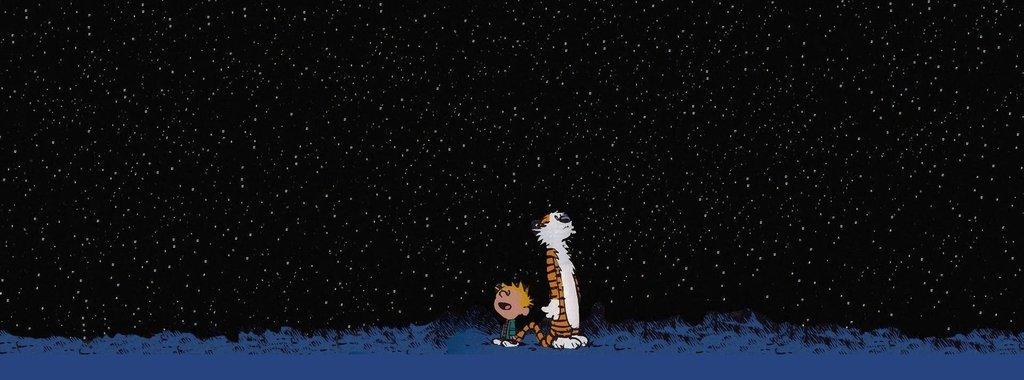-
Posts
13781 -
Joined
-
Last visited
Content Type
Profiles
Forums
Events
Everything posted by Sayonara
-

Terraformation of Mars (opinions or ideas)
Sayonara replied to question123's topic in Other Sciences
I will have a more intensive dig about for recent ground-level readings later on, when I get back from the shops. I am of the opinion that digging out underground systems is dangerous and effort-intensive enough on Earth, never mind in such a hostile environment as Mars, and that we are not simply limited to either caverns or metres of shielding. Magnetic repulsion in orbit, for example, is a viable alternative. Having said that, the recently discovered caves on Mars might make very convenient staging areas from which primary colonists could build outwards and tunnel inwards. -
Since the elephants came up, is there any reliable historical source on how many didn't make it to the battle? Or, for that matter, what measures were taken to assist them in retaining heat, or how they were supported in terms of food? Without those bits of information the reference is of questionable helpfulness.
-

Terraformation of Mars (opinions or ideas)
Sayonara replied to question123's topic in Other Sciences
That won't really work as well as you think. Plants use oxygen as well as carbon dioxide. There is also the issue of physically transporting gasses across the solar system, which is going to be prohibitively expensive. Pretty small, I'd imagine. Tiny. -
No, you are right: size is not the end-all factor in deciding survival during events such as the KT event. But the evidence shows it is a significant factor in determining how likely species are to be driven extinct by that particular combination of selective pressures. I sincerely and seriously doubt that with such strong pressures in effect that there were many, if any, accidental survivals. Biology is just not that vague.
-

Terraformation of Mars (opinions or ideas)
Sayonara replied to question123's topic in Other Sciences
"Easiest", or "hardest"? Surely it would be easier to throw up some modular shelters than it would to pretend the radiation isn't there while you dig out a network of tunnels with the drilling equipment that was too heavy to take. The sources I have read state that the bulk of the damage done by the solar radiation takes place in the upper atmosphere, and that explorers on the surface would be exposed to high levels of radiation only during solar eruptions (from several a day to perhaps one a week). If you have different data it would be helpful if I could see it. -
Why should I? Why should I not also adopt the same position (so to speak)? Lucaspa does not have any sole claim to explaining the answer to the question in the OP, and you don't get to choose who will respond to any given post. The fact that you missed the reasoning or failed to understand it does not mean that it is invalid. Lucaspa is making a distinction between the relative rates of energy loss in small and large species, and the absolute energy losses in each case. Understanding why these need to be considered differently is vital to this discussion. SkepticLance is ignoring the differentiation because he wants to talk about something else; don't follow him down that path because it leads to the dark side. The bit you responded to with incredulity was "But the small birds of the savannah -- with their insulation and smaller body area to lose heat -- might live thru the blizzard. The confusion arises here if one assumes that we are still talking about heat loss in relative terms. But at this point, the only thing we are interested in is heat loss in the absolute sense; that is, the total heat loss per individual per unit of food biomass available. Large animals might lose heat at a lower rate relative to smaller animals and birds, you see, but they lose many times more heat energy per unit time. And that must be constantly replaced in a generationally viable number of the population in order for species to at least go on existing. Considering the scenario -- that of a biosphere laid waste and a climate out of control -- we might reasonably assume that this survival cost is more easily met by the populations with the lesser requirements. And we would be right, because that is how it works. I didn't say that you did forget about them. But you don't seem to be applying population-level thinking. If you were, your last post would have been agreeing with mine. It's not really a matter of opinion, after all. The difference between considering the mortality probability of an individual and the mortality rate of a species is not a simple matter of scaling up. A consequence of this is that the consideration of extinction likelihood falls apart if you are trying to explain it in terms of simple adaptive traits that are not uniformly distributed. In a similar fashion, considering the process of selection in terms of a hypothetical "golden individual" is meaningless if the problem being examined is one that acts across not just a population, but all populations of that species. I take it you meant a new population, rather than a new species. This is actually very rare in higher animals, because they almost invariably have a less tolerant generational viability threshold than things like moss and asexual organisms. Incidentally, that is not the correct use of "pioneer". Unless you actually do mean something along the lines of "plants that colonise barren environments", in which case I don't see how it is applicable to our birds and dinosaurs.
-
He understands that just fine. I'll admit he is not making the best possible case but the principles he is arguing from are sound. Get away from the habit of thinking about individual survival and think about species dynamics. Individuals do not evolve or go extinct - species do. The reasons the species with smaller size survived are: 1) The lower resource cost per unit biomass of population could be more commonly supported by whatever food item biomass remained after the catastrophe, 2) The adaptive features of feathers, fur etc have vastly more pronounced effects on proportionate rate of heat loss for smaller organisms than they would for larger organisms, reducing the mortality rate across the population much more sharply, 3) Smaller species frequently have shorter generational cycles than large species, and more frequent and productive breeding cycles. This would have amplified selective effects, shored up food item biomass (we of course assume some of the smaller species were carnivorous or carrion eaters), and of course increased the probability of each generation being viable in terms of further breeding. Therefore two significant pressures that were too much in combination for the larger species could have been much less of an issue for the smaller species, in fact they could strongly select towards rapid adaptation to the conditions.
-
The replicators are supposed to draw energy from the plasma conduit network, which is fed by the warp core (so essentially as much energy as you could possibly want). They convert this energy into matter using the [insert technobabble] process, organised according to a template from the computer. As far as I am aware, this is pretty much possible in principle, but I think Star Trek is somewhat optimistic that the technology will not just be available in 300 years, but so reliable and refined as to be used on a whim.
-
Look into hash tables: http://en.wikipedia.org/wiki/Hash_table#Time_complexity_and_common_uses_of_hash_tables
-

Terraformation of Mars (opinions or ideas)
Sayonara replied to question123's topic in Other Sciences
Some threads you might find helpful for getting a more esoteric view of Mars and terraforming issues: Why is it always Mars? How do we share Mars? Why are you obsessed with settlers living underground on Mars? It's not "almost certain" at all, it's unnecessary and economically stupid and therefore remarkably unlikely. Cheap, light, modular domes yes; ridiculous amount of mining no. -
Especially since we all know physia isn't going to let a little thing like rebuttal stand in his way.
-

Strings: One Dimensional? How?
Sayonara replied to Hypercube's topic in Modern and Theoretical Physics
I think I confused myself to be honest. Since I posted that I have been trying to construct some idea of an entity with erratic duration, in any way that makes sense. -
It will still hurt though.
-

Strings: One Dimensional? How?
Sayonara replied to Hypercube's topic in Modern and Theoretical Physics
Not in the least. I just love that word. Attacking arguments with vigour is encouraged Perhaps it is not a question of existence, but of the perception of the higher dimensions. If higher dimensions contain lower dimensions, then it follows that anything that exists in any given dimension also exists in the dimensions above it. But those higher dimensions are not necessarily observable by that object in the same way that they are observable in that higher dimension. An accessible example would be flatlanders, who move in the third and fourth dimensions but are unaware that the path they are taking can, to beings in the third dimension (like us), seem quite odd. -
Seeing as Britain and the US are in the "war" on terror together, I am not really convinced that the recent bombings constitute "international terrorism". True, the UK and the US are different nations, but in terms of the sides fighting in this so-called war, isn't the UK just the bit of the US that is easiest to get to? It's not like the UK didn't expect to get bombed.
-
We are really nice, aren't we? BUT CAREFUL!
-
Physia, if you have any interest in staying on this site as a contributing member, then you need to reconsider your tendencies to drift towards hate speech and logical fallacies. They are not consistent with our purpose.
-
Even if you considered North America to be moderately or lightly populated, it is quite evident that overpopulation elsewhere affects matters in the US. You are involved in trade and politics.
-

Strings: One Dimensional? How?
Sayonara replied to Hypercube's topic in Modern and Theoretical Physics
It's not at all about how bad you are (although you are quite the blackheart, I hear). It's just that if anyone is going to take flak for being mean we'd rather it was us (staff) and not you (members). -
When the movie of this thread is listed on IMDB, Google will be there as "uncredited cameo".
-
Right, wrong, who cares as long as you punch them?
-

Strings: One Dimensional? How?
Sayonara replied to Hypercube's topic in Modern and Theoretical Physics
And do please remember that there is a "report this post" feature, which can be used in instances of sheer crackpottery. Note that it is not to be used for any post one happens to disagree with (this actually happens sometimes; it is quite depressing). -
To fight the YT, we must understand the YT. We can ill afford another Klendathu!
-
That's not an exception, it's what YT said He just forgot about syllables.

